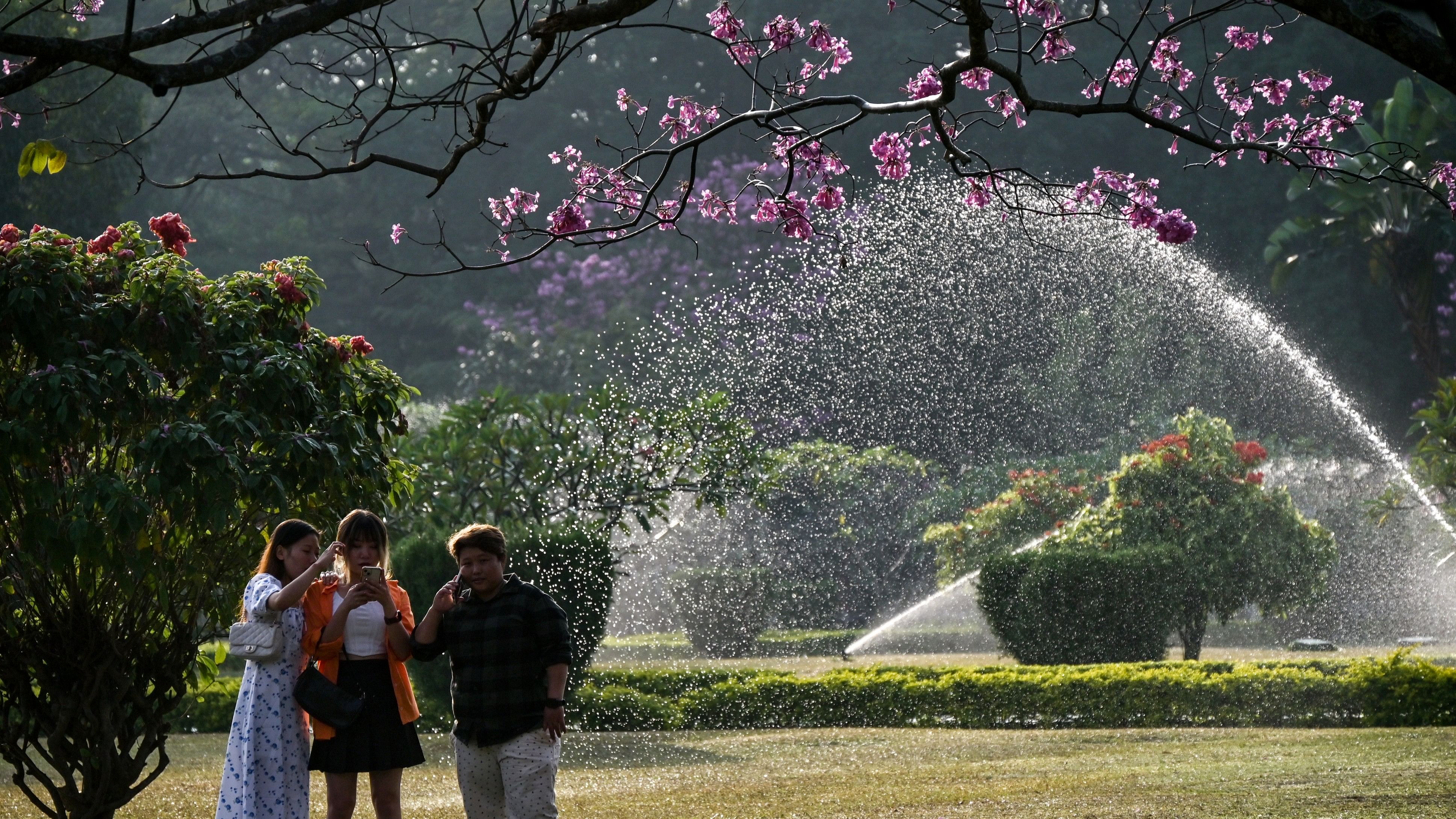
Unusual rains, flooding, air and sea pollution are among the key issues that concern every citizen amid vanishing wetlands, known as urban sponges and greenery and mangroves.
Credit: DH Pool Photo
Mumbai: Political parties in poll-bound Maharashtra have chosen to turn a blind eye to the all-important issue in the ongoing election campaign despite the climate crisis looming large by the day, environmentalists lamented.
Unusual rains, flooding, air and sea pollution are among the key issues that concern every citizen amid vanishing wetlands, known as urban sponges and greenery and mangroves, NatConnect Foundation which initiated the awareness campaign said.
As it is, Mumbai and its regional urban centres are fighting for open spaces and it is a horrible situation when the erstwhile textile mill lands get converted into concrete jungles with nil focus on tree plantation, NatConnect Director B N Kumar said.
As per the World Health Organisation, the per capita open space is nine square mt, whereas it is a mere 1.1 sq mt in Mumbai and a tad better 3.9 sq mt in Navi Mumbai, Kumar said.
This explains for the stifling air pollution that “earns” top rankings for Mumbai and the larger Mumbai metropolitan region (MMR), he said and appealed to the voters to question the candidates on their plan of action.
It is high time that the politicians moved beyond their caste-religion rhetoric and focused equally, if not more, on environmental care, Kumar said in a press statement.
India ranks 176 out of 180 countries in biodiversity index and in Mumbai the subject is deeply ignored, he said and called for focusing on an aggressive tree plantation and protection drive.
Concurring with this view, Sagar Shakti Director Nandakumar Pawar pointed out that “the creek and sea waters are getting highly contaminated with the officials remaining in a denial mode despite our complaints”.
“Along with NatConnect we have been shouting literally from the rooftops about consistent burial of inter-tidal wetlands in areas such as Uran,” Pawar said and pointed out that the villages have been reeling under unseasonal floods as natural course of water has been getting diverted.
Adding to this is the attack on salt pans for developing housing complexes at places such as Mulund, Pawar said and warned of floods in the city as the “urban sponges” disappear.
Mumbai does not learn lessons from its own experience and the flooding of places such as Chennai. A WWF study has recently stated that over 60% of Chenna’s wetlands are buried with real estate and this leads to monsoon flooding in the city.
“The then Uddhav Thackeray-led Maha Vikas Aghadi government came out with a Mumbai Climate Action Plan (MCAP) but was relegated to the back burner under the successive Maha Yuti government. In fact, the Shiv Sena (UBT) is the lone political outfit that mentions environmental care in its manifesto and promises to revive the climate action plan for all the districts,s NatConnect said.
Jyoti Nadkarni of Kharghar Hills and Wetlands group said wetlands and mangroves are being damaged under the guise of projects such as Prime Minister’s Awas Yojana (PMAY) or coastal roads. With an unplanned water management system, the rapid urbanisation will turn out to be a meaningless exercise, she cautioned.
“As it is we are forced to depend on tanker water supply in this so-called city of the 21st century and on top of that we see a series of 50-storeyed buildings coming up,” Nadkarni lamented.
Mumbai's rapid urbanizstion has resulted in challenges that directly affect public health, infrastructure resilience, and environmental sustainability, said Godfrey Pimenta, Director of Watchdog Foundation.
The city's air quality has been worsening due to the continuous rise in uncontrolled construction activities and an increase in vehicular traffic posing a serious health risk, particularly to children and the elderly. He, therefore, called for enforcing strict air pollution controls at construction sites, including dust mitigation and monitoring systems.
Pimenta wanted the governments to promote public transportation, electric vehicles, and incentivise eco-friendly alternatives to curb vehicular emissions.